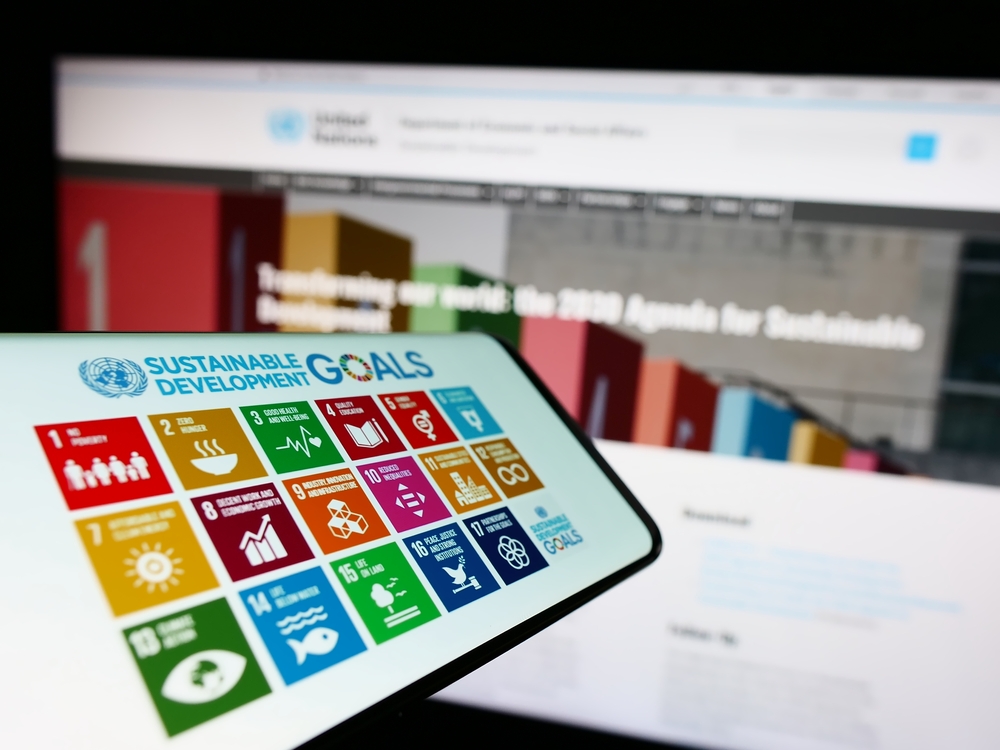Mobilising Wealth Into Philanthropy
Private Wealth Is Vital To The 2030 Sustainable Development Goals
Only 15% of the United Nations Sustainable Development Goals are currently on target. Only through a widespread and willing mobilisation of private wealth can the 2030 Agenda be saved.
Progress on half of The Goals is either “moderately” or “severely” behind, and as many as 30% of The Goals have regressed behind where they were when conceived in 2015.
But it is not new technology or science or knowhow that is needed to make progress. What is needed is accelerated funding and technology transfer into grassroots projects in low-income countries that can generate large socio-economic return in support of The Goals.
But the status quo and established order will not achieve this. The Secretary-General of the United Nations knows this, noting in The Sustainable Development Report 2023 the need for different forms of finance to work together and a departure from “business as usual”.

Philanthropy with a socio-economic impact
To attain the 2030 Sustainable Development Goals will then require a willing mobilisation of private wealth into grassroots sustainable development projects. This means that wealthy individuals and institutions must be persuaded to apportion more wealth into The Goals.
This is not as hard as it might sound. The Pandemic was devastating to The Goals, precipitating the first rise in extreme poverty in a generation. But it also refreshed a self-awareness of the social obligations that come wealth amongst those in possession of it.
This sparked a new private interest in direct engagement in philanthropic projects that could turn wealth into worth in the most efficient manner. Advisors were being asked to explore what avenues of giving would generate the biggest socio-economic impact for their clients.
New vehicles for giving, such as the 2030 Sustainable Development Collective Fund, a socio-economic impact accelerator fund, were created to direct charitable giving and philanthropy into the acceleration of grassroots projects in the developing world without any friction.
Visible opportunities to drive the 2030 Agenda
Such funds are premised on the significant impact that can be achieved by connecting private giving with opportunities to fund grassroots projects that are under resourced and little known. By definition, when ‘accelerated’ through the provision of significant private funding, these projects can generate substantial socio-economic value toward The Goals.
Such postulating invariably requires an example. Sustainable Development Goal 3.1 is to reduce the global maternal mortality rate (‘MMR’) to below 70 per 100,000 live births. As of 2020 the MMR was 223, which means 800 women dying each day from preventable causes related to pregnancy and childbirth — equivalent to one every two minutes.
95% of these maternal deaths occur in low and lower middle-income countries where women often have no access to healthcare. Yet a relatively simple program to mobilise community maternal screening programs by training health workers and equipping them with mobile ultrasound scanning machines can save the lives of women and their babies.
The cost of doing this? Approximately GBP £12.50 (US $16) per screening. Annual funding of GBP £1m (US $1.27m) into fledgling existing grassroots projects would allow for the screening of 240,000 more women every to support early detection and referral.
Why is private philanthropy a prerequisite for reputation?
Across the world there is an accelerating paradigm shift toward a cultural expectation that wealth holders will embrace their responsibility to contribute positive change in the world.
With reputation increasingly mediated not by the legacy media but by a democratised universe of content, it is essential that wealth holders synthesise 'worth' into their reputations.
Demonstrating that a portion of wealth is being diverted into helping others, not by merely giving money, but also through active engagement, is thus essential in the modern world.
With the right strategy, private philanthropy can simultaneously engender the values and objectives of a principal family, whilst also elevating powerful voices of authority.
Principals and families can then use that voice to champion and support wider sustainable global change beyond the direct impact of any single philanthropic project.
Michael Macfarlane Associates helps UHNWIs, Family Offices, Foundations and Institutional clients to turn wealth into worth through the creation and management of philanthropic projects.
Impact without imposing change upon indigenous communities
Similarly, Sustainable Development Goal 2 aims to achieve “zero hunger” whilst Goal 13 calls for urgent action to combat climate change and its impact. These issues are disproportionately prevalent within the world’s remote and low-income communities where they pose a clear and present threat to what are often already imbalanced and fragile lives.
Farmers upon whom remote agrarian communities depend on for food and who have farmed unhindered for generations in remote communities in the foothills of the Himalayas, must now contend with delayed monsoons, erratic weather patterns and unprecedented soil erosion due to the impact of climate change.
To avoid food insecurity and prevent malnutrition and starvation in these communities, there is an urgent need for outreach programs to share climate-resilient farming techniques whilst simultaneously recognising and respecting the indigenous knowledge of the local farmers.
And the cost of outreach programme that fuses science with indigenous knowledge to adapt to and mitigate the impact of climate change and create sustainable solutions for local food security? Only about GBP £4 per villager (US $5) based on spending GBP £1,000,000 (US $1,270,000) on thirty villages for three years with a combined population of 75,000.
An opportunity for partnerships with private wealth holders
The point of these examples is that such projects are targeted and do not entail the imposition of change upon indigenous communities by outside forces or NGOs. Rather they are locally derived grassroots projects that are small enough for private wealth to participate in the acceleration of in a manner that’s big enough to drive a huge impact toward The Goals.
Invariably there will be political reticence about private individuals and institutions playing a greater role in the 2030 Agenda. Many believe public bodies should have a monopoly on the 2030 Agenda, funded by taxation. Others doubt the altruism of philanthropists.
But such views underestimate the agility of private wealth to select and engage in philanthropic projects that convert wealth into human outcomes more efficiently; and which by nature accelerate The Goals by generating maximum socio-economic return.
By 2030 every individual and institution of means should report proudly on the grassroots projects that they have willingly funded and accelerated to create human outcomes and generate socio-economic impact in support of The Goals. Only through such a widespread and willing mobilisation of private wealth into The Goals can the 2030 Agenda be saved.


